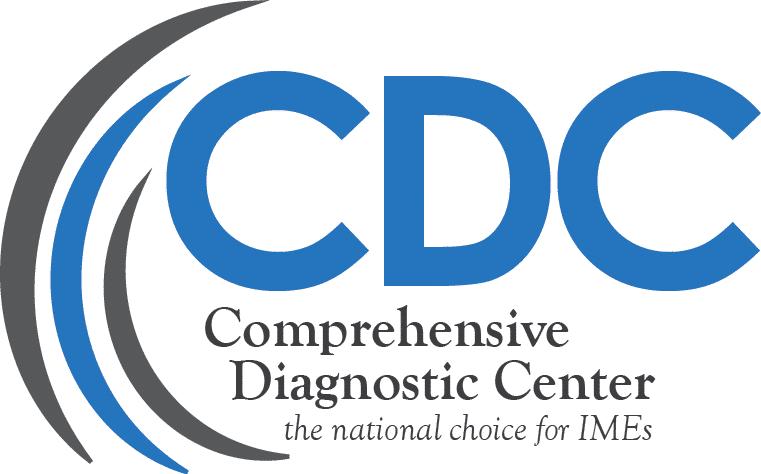The Role of Nurse Case Managers in Coordinating Independent Medical Evaluations (IMEs)
December 4, 2024Key Considerations for Legal and Insurance Professionals When Scheduling an IME
March 1, 2025Addressing Common Misconceptions About IMEs: What Legal and Insurance Professionals Should Know
Independent Medical Evaluations (IMEs) play a crucial role in resolving disputes in legal and insurance claims. However, misconceptions surrounding their purpose and process can lead to mistrust and mismanagement. In this blog, we’ll debunk common myths about IMEs and clarify their true role in ensuring fair outcomes for all parties involved.
Misconception 1: IME Doctors Are Always Biased Toward Insurers
One of the most common criticisms of IMEs is that they favor the requesting party, often insurers. While it’s true that insurers frequently request IMEs, doctors conducting these evaluations are bound by ethical standards and are expected to provide impartial assessments based solely on medical evidence. A 2014 article from the National Center for Biotechnology Information (NCBI) highlights that maintaining objectivity is critical to the integrity of the IME process (NCBI).
However, as noted by Michigan Auto Law, there are instances where some evaluators may demonstrate bias. Legal and insurance professionals can mitigate this risk by carefully vetting IME providers for professionalism, credentials, and a history of impartiality (Michigan Auto Law).
Misconception 2: IMEs Are the Same as Routine Medical Examinations
Unlike routine medical exams conducted by treating physicians, IMEs are not intended to diagnose or treat patients. Instead, they are focused assessments used to address specific medical questions related to a legal or insurance claim. The NCBI emphasizes that IMEs aim to clarify issues such as causation, injury extent, and treatment necessity, which are critical for resolving disputes (NCBI).
Misconception 3: IMEs Are Designed to Undermine Claims
Claimants often fear that IMEs are conducted to discredit their claims. This misconception stems from cases where evaluations are used to deny benefits. The video resource from Rex Law outlines that while some IMEs may appear unfavorable to claimants, their purpose is to provide a neutral perspective to ensure claims are based on verifiable medical evidence (Rex Law).
Professionals must ensure that IMEs are conducted transparently and with clear communication about their purpose to reduce mistrust among claimants.
Misconception 4: IMEs Always Delay Claims
While scheduling and conducting an IME can take time, the process often expedites claims by providing clarity on disputed issues. According to the NCBI, timely IMEs prevent prolonged legal battles and facilitate quicker resolutions (NCBI). Efficient scheduling practices and clear communication can further minimize delays.
Misconception 5: Claimants Have No Rights During IMEs
Contrary to this belief, claimants have specific rights during the IME process. They are entitled to know the purpose of the evaluation, provide relevant medical history, and, in some cases, have representation present during the exam. These rights ensure transparency and fairness, which are crucial for fostering trust in the IME process (Rex Law).
Best Practices for Legal and Insurance Professionals
To ensure the effectiveness and fairness of IMEs:
Select Experienced and Ethical Evaluators:
Vet providers thoroughly to ensure they are qualified and unbiased.
Communicate Clearly with Claimants:
Explain the purpose of the IME and what to expect to alleviate concerns.
Adhere to Legal and Ethical Standards:
Stay updated on regulatory requirements to maintain compliance.

Conclusion
At Comprehensive Diagnostic Center, we understand the critical role Independent Medical Evaluations play in resolving legal and insurance disputes. By addressing common misconceptions and fostering transparency, our team of experienced, board-certified professionals ensures that every IME delivers objective, evidence-based assessments. With a focus on accuracy, fairness, and efficiency, CDC is dedicated to supporting legal and insurance professionals in achieving fair outcomes for all parties involved.
References
- National Center for Biotechnology Information. (2014). Objectivity in Independent Medical Evaluations. Retrieved from https://pmc.ncbi.nlm.nih.gov/articles/PMC3940566/.
- Michigan Auto Law. (2023). Are IME Doctors Fair? Retrieved from https://www.michiganautolaw.com/blog/2023/04/28/are-ime-doctors-fair/.
- Rex Law. (2024). The Ugly Truth About Independent Medical Exams. Retrieved from https://www.rexzlaw.com/videos/the-ugly-truth-about-independent-medical-exams.

